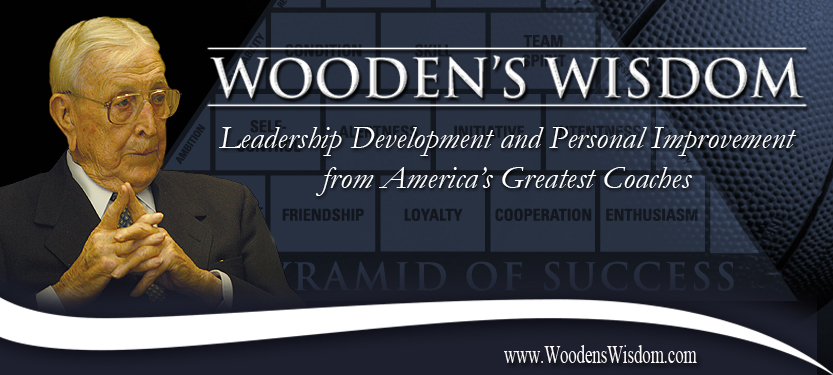 |
|
| Wooden's Wisdom - Volume 13 | Issue 667 |
| Craig Impelman Speaking | Championship Coaches | Champion's Leadership Library Login | |
|
"WHEN YOU LOOK FOR THE BEST IN PEOPLE YOU BRING OUT THE BEST IN THEM." (DANIEL COYLE AND JOHN WOODEN) Coach Wooden liked to say: "You often find what you're looking for." In one of Coach Wooden’s favorite essays, The Art of Leadership, Mr. Wilfred Peterson wrote: "The leader has faith in people. He believes in, trusts, and thus draws out the best in them."
In his book, The Culture Code, Daniel Coyle provides a wonderful example of that idea:
In 1965, Harvard psychologist, Robert Rosenthal approached a California public elementary school and offered to test the school’s students with a newly developed intelligence-identification tool, called the Harvard Test of Inflected Acquisition, which could accurately predict which children would excel academically in the coming year.
The test was administered to the entire student body. A few weeks later, teachers were provided with the names of the children (about 20 percent of the student body) who had tested as "high potential students". (The students were not informed of the test results.)
These children, the teachers were informed, were special. Though they might not have performed well in the past, the test indicated that they possessed "unusual potential for intellectual growth."
The following year Rosenthal returned to measure how the "high potential students" had performed. Exactly as the test had predicted, the first and second grade "high-potential students" had succeeded to a remarkable degree: The first graders gained 27 IQ points (versus 12 points for the rest of the class); and the second graders gained 17 points (versus 7 points).
These "high-potential students" were described by their teachers as being more curious, happier, better adjusted, and more likely to experience success as adults.
Here’s the twist: the Harvard Test of Inflected Acquisition was complete baloney. In fact, the "high potential students" had been selected at random.
With the "high potential students" teachers were kinder and more attentive. They provided more material for learning, called on the students more often, and listened more carefully. Each time a "high potential student" made a mistake, the teacher presumed that the student needed better feedback.
The teachers "looked for the best in these "high potential students" and brought out the best in them."
Who could you bring out the best in?
Yours in Coaching, Craig Impelman
|
A Suggestion If you've grumbled through the day Edgar Albert Guest (1881-1959)
|
|
For more information visit www.woodenswisdom.com |
|
© Copyright 2026 WoodensWisdom.com | # of Times Wooden's Wisdom Issues Opened: 7,823,229
Hosting & Design by:EverydayWebDesign.com